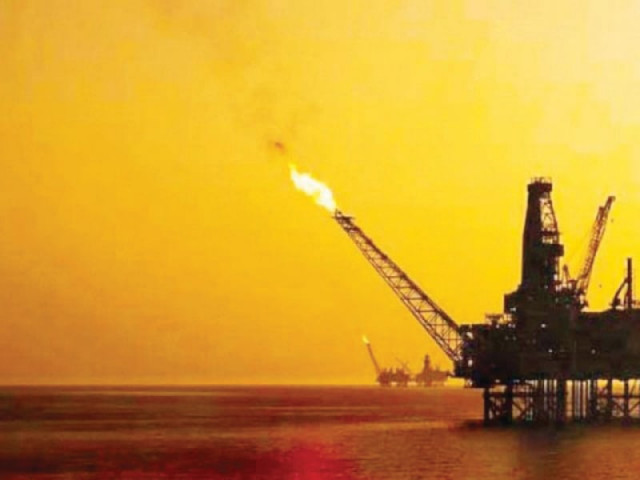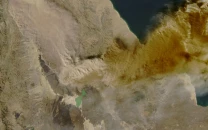Samples sent: US to assess potential of Pakistan’s shale gas reserves
USAID provides $1.8m in technical assistance for conducting study.

Samples sent: US to assess potential of Pakistan’s shale gas reserves
Pakistan has sent samples of shale gas to the United States to determine the prospects of reserves of this untapped energy source following encouraging estimates given by the US Energy Information Administration (EIA), officials say.
According to the EIA assessment, Pakistan holds massive shale gas reserves estimated at 51 trillion cubic feet (tcf), close to the conventional gas reserves of 58 tcf.

At present, the government is conducting a study with the technical assistance of US Agency for International Development to prove the presence of huge shale gas deposits in the country.
Sources disclose that USAID has provided $1.8 million in technical assistance for undertaking the study. “Some samples have been sent to the US and research work will be completed in one year,” an official said, adding they were also looking for adopting US technology.
Washington is also imparting technical training to Pakistani officials and employees and engineers of public sector oil and gas companies.
The Ministry of Petroleum and Natural Resources has sent a summary to the Economic Coordination Committee (ECC) of the cabinet, seeking the go-ahead for initiating a pilot project to search and consume the shale gas potential. The move is aimed at gradually bridging the yawning gap between demand and supply of energy.
Shale gas is natural gas that is found trapped within shale formations. It has low permeability compared to conventional reserves, that’s why it does not come out easily and a specific amount of investment and pricing are required to encourage its exploitation.
At present, Pakistan is not producing shale gas and needs to undertake significant initial work to tap this energy resource.
The US, after the discovery of massive shale gas deposits there in recent years, has become a gas-exporting country. In future, reports say, it will experience a boom in shale oil production as well and will become the largest oil producer.
Officials point out that Pakistan will offer $12 per million British thermal units (mmbtu) to gas exploration and production companies under the pilot programme, a price that is close to the cost of gas to be imported from Iran under the Iran-Pakistan pipeline project.
“A policy framework has been prepared and its approval will be sought from the ECC in its upcoming meeting,” an official of the petroleum ministry told The Express Tribune.
According to the official, exploration companies have already found some traces of shale gas during the search for conventional gas as 10% to 12% of shale gas appears on upper faces of conventional gas.
Experts suggest that Pakistan has consumed around 40% of conventional gas reserves and shale gas is the most viable option to meet growing energy needs.
A study conducted by a group of exploration and production companies says the production of shale gas will be economical at about 80% of the price of Brent crude, but this will have to be brought down to 70%.
Apart from shale gas, the government is also planning to drill 400 wells in the next four years in an effort to enhance the country’s oil and gas production.
Though in the past one year new gas deposits had been found, total production of the country stood at almost the same level at four billion cubic feet per day because of depletion of reserves in old fields.
According to officials, the country has added 500 million cubic feet of gas per day (mmcfd) from new finds, but a quantity more than that has been depleted. Therefore, the impact of additional 500 mmcfd is not reflected in overall production.
However, oil output has risen to near 100,000 barrels per day compared to 74,000 barrels per day earlier.
Published in The Express Tribune, August 22nd, 2014.
Like Business on Facebook, follow @TribuneBiz on Twitter to stay informed and join in the conversation.



















COMMENTS
Comments are moderated and generally will be posted if they are on-topic and not abusive.
For more information, please see our Comments FAQ